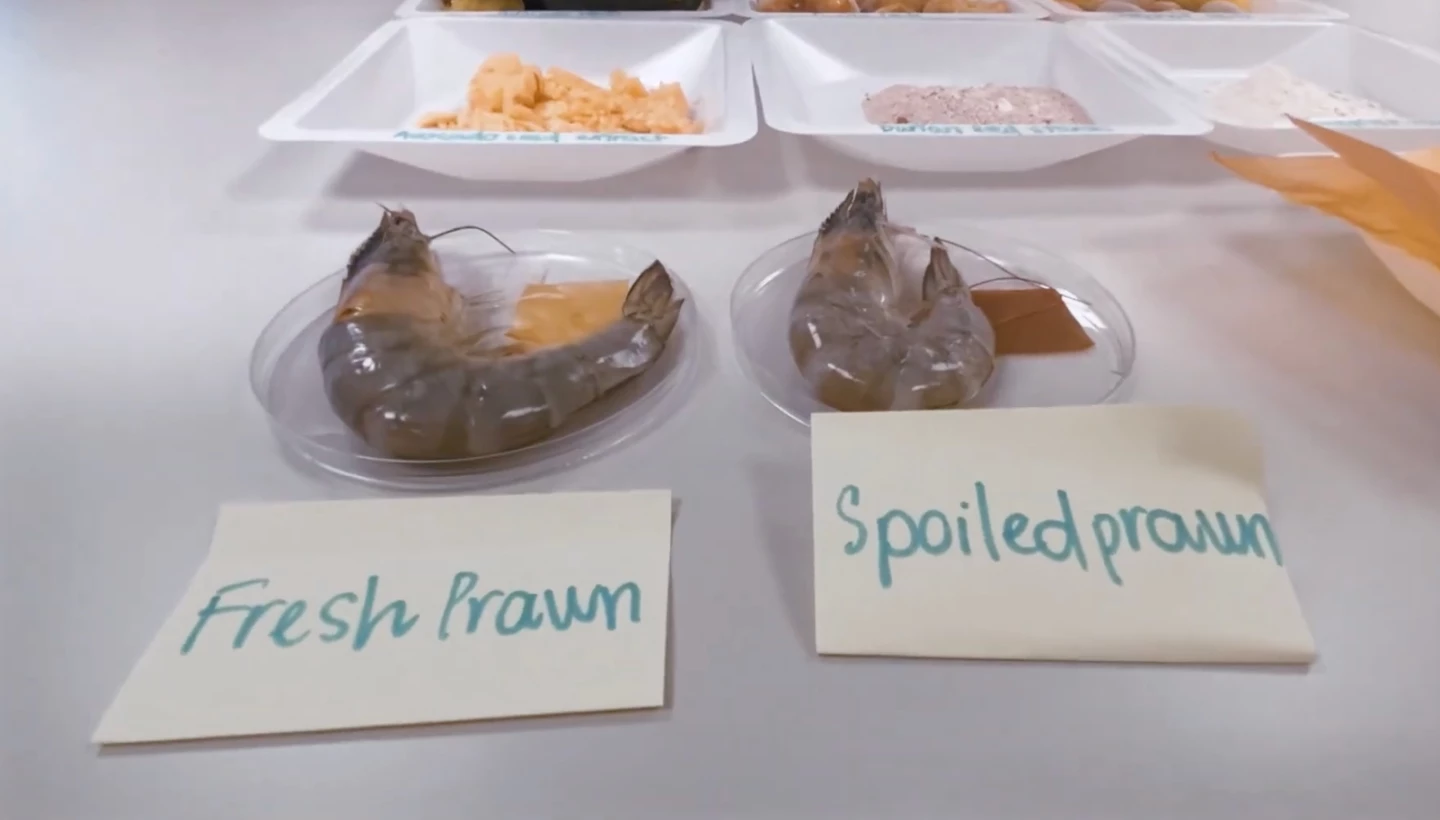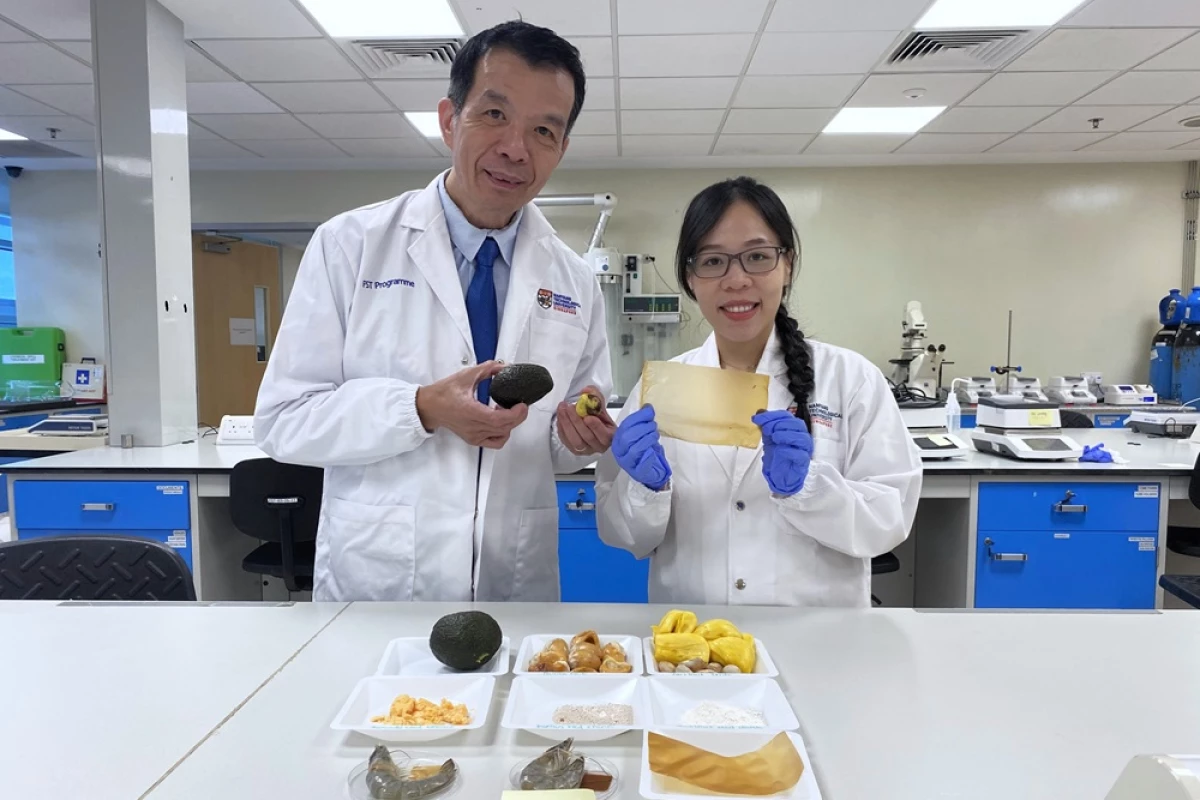Most food-wrap films just act as a barrier to bacteria, but don't actually kill the microbes. An experimental new film does exactly that, plus it changes color to show when food is spoiled. And what's more, it's made from avocado seeds.
The material is currently being developed at Singapore's Nanyang Technological University by a team led by Prof. William Chen. Bill is a busy guy, as he has also recently brought us innovations such as a food emulsifier made from beer-brewing waste, an algae-based palm oil alternative, and food trays made from chicken feathers.
In this latest project, Chen and colleagues processed discarded avocado seeds to extract three naturally occurring compounds from them – catechin, chlorogenic acid, and a pigment known as perseorangin.
The first two substances are known to kill harmful bacteria such as Staphylococcus aureus and Escherichia coli, by damaging the microbes' cell membranes. Perseorangin, on the other hand, changes color in response to changing pH levels. Those levels rise as nitrogen compounds are produced by bacteria feeding on high-protein foods like meat or fish.
While the avocado seeds provide the active ingredients in the film, the bulk of the material is composed of starch harvested from discarded durian and jackfruit seeds.

In lab tests, raw prawns were placed in Petri dishes along with pieces of the film. As the prawns began to spoil, the material provided a warning by changing from yellow to brown in color. Importantly, it did so up to two days before the prawns themselves changed in color or smell.
"We have developed a new food wrap expected to have a profound impact on reducing food wastage by harnessing the power of nature, namely the antimicrobial and anti-spoilage compounds in discarded avocado pits," says Chen.
This actually isn't the first film we've seen that changes color to warn of spoiled food. While none of them incorporate avocado-seed compounds, similar materials are being developed by scientists at MIT, the Fraunhofer Research Institution for Modular Solid State Technologies, and the University of Strathclyde.
Source: Nanyang Technological University





